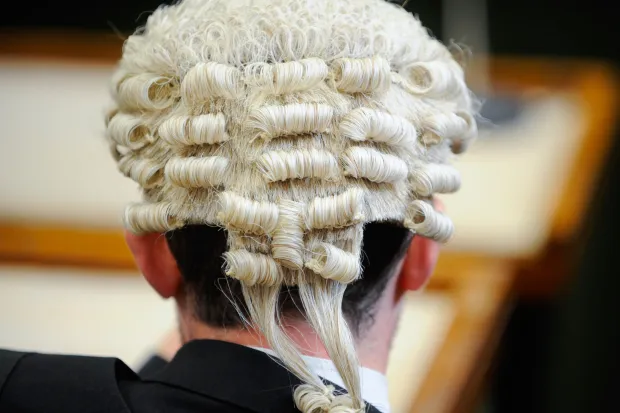
What does the Pupillage Gateway Report 2024 say for diversity and inclusion?
March 11, 2024
A Guide to Group Study for Law Students
March 11, 2024By Jasmeen Kaur.
Reading time: five minutes
In the realm of justice, appointing judges is a crucial factor in ensuring equity. In this article, we will go deeply into the many types of judges that sit on courts, their decision-making processes, the influence of universities, how students can be affected, and the actions taken by the UK concerning this. Let’s examine the connections between these components and the implications for our legal system.
Examining the diversity of judges in court
Given the diversity of the judiciary, gender and race are significant deciding factors when selecting candidates to become barristers. According to reports from 2022, male barristers make up the majority of the profession in the judiciary and are more likely to hold prominent positions. There were 21% female barristers and 38% male barristers, the judges. Even though there may be an increase in the number of female barristers, this can also be a significant element that influences students’ willingness to pursue a career in law and become barristers. The number of ethnic minority barristers is another factor to take into account. These figures are pretty discouraging and indicate the need for a significant adjustment to be made as quickly as feasible since ethnic minority barristers made up only 9% of applicants.
Three-quarters of the applications were from white solicitors. 6% of judges were solicitors from ethnic minorities. Nearly all positions (95%) in the senior court judiciary were held by white former barristers. Everyone is left wondering why women and ethnic minorities are not treated equally when they see the stark lack of diversity in the field. If nothing changes or is demonstrated, many students will be discouraged from pursuing a legal career because solicitors face similar difficulties as the previous articles have shown.
Legal decision making
Racial bias exists in the decisions made by the legal system, and it is a heartbreaking reality to even bring it up. According to statistics, 29% of respondents stated that racial bias had a “fundamental role” in the procedures or results of the legal system. In comparison, 95% of respondents said that it had some part. Most respondents reported having seen at least one judge make decisions and act biased against a defendant based on their race. The existence of racial bias in the decisions and outcomes of the legal system is a lamentable fact. A judiciary’s primary goal is to provide justice to individuals; this includes refraining from accusing people of crimes only based on their race.
Given that the goal is to prove that a person’s sentence was not imposed because of their race, race or ethnicity should never be a factor. Even writing about this topic now makes me consider how unfair our justice system is and how innocent people may be imprisoned because of their race, particularly when it comes to Asian and Black people.
According to the survey, Black people are by far the most frequently targeted group for judicial discrimination, including lawyers, witnesses, defendants, and other members of the Black community. The subgroup that was most commonly mentioned as being the subject of judicial bias was young Black male defendants. Since we are all ultimately just human beings, everyone has a right to justice and shouldn’t be concerned about receiving unfair treatment.
Suppose there is this much discrimination in the judiciary. In that case, students will undoubtedly be discouraged from pursuing a career in law because, even in cases where they argue, the judge’s decision may be biassed against the client based on their race, making it an unfulfilling profession.
Education
The working party’s chair, Natalie Lieven QC, deeply worries that becoming a judge is no longer regarded as an appealing career path for public service. Education is one of the causes of this. Since the 1980s, three-quarters of the High Court and Court of Appeal judges have received their education privately. It is particularly unfavourable that judges who have received private education are being selected. While attending state education does not necessarily mean that a person lacks aptitude, it does mean that they may not be able to afford private education. Nevertheless, students attending state education are likely to put in more effort than those attending private education because they must seek opportunities themselves since they are not provided to them by schools to stand out and be hired. As someone who attended a public school, I wholeheartedly concur with the facts because I had to put in much more effort than people with an advantage.
Students are typically told that attending a non-Russell Group university should be fine and not an issue when seeking job opportunities. Still, research in the literature has shown that the traditional legal professions—solicitors and barristers—continue to favour graduates of “top” universities, such as Oxbridge and Russell Group institutions, because they “maintain a preference for recruits who have received an “elite” education.” The benefits of attending a highly regarded university become apparent during the pupillage application. It was explicitly made more evident by Kotecha et al. (2017), who focused on the opinions and experiences of people of colour and those from lower socioeconomic groups during in-depth interviews with 25 Bar Professional Training Course (BPTC) students and 25 pupillage applicants. Participants believed the pupillage application and selection procedure favours individuals in the “top” tier. Students may become more reluctant to pursue a law degree after seeing these statistics, but this should never be the case because living in a diverse nation should open up career opportunities for people with various backgrounds and specialities, which will enhance the justice system.
What is the UK doing to tackle this issue?
“The judiciary must be truly open to every one of the requisite abilities. I simply do not accept that this is an issue where we should be content to sit back and just wait for things to happen”. This speech by Lord Thomas of Cwmgiedd, Lord Chief of Justice of England and Wales, emphasises the necessity for swift change to ensure the legal system is fair and varied. Not because judges of any particular race will “represent” a monolithic viewpoint, but rather because judges of a specific ethnicity or race will likely be more able to comprehend and take seriously views held within their own racial or ethnic communities, which would further enhance the judiciary’s institutional capacity for transparency to alternative viewpoints.
The UK unveiled its Judicial Diversity and Inclusion Strategy in November 2020, outlining its goals and objectives for the following five years to ensure a more equitable and varied judiciary, enabling the judiciary to be strengthened and better for the public. Given that Lady Justice Simler, one of the diversity committee members said that “[she is] more committed than ever to having a judiciary in which a stronger culture of inclusion and collaboration is fostered and maintained,” this would be highly useful.
Top professionals are sought at all levels, promoted, motivated, and retained from various experiences, cultures, and backgrounds. This is an excellent initiative to guarantee greater diversity, which will also help to boost students’ confidence in their desire to pursue a career in law. Aspects like “Supporting and building a more inclusive and respectful culture and working environment within the judiciary” and many more will be included in these initiatives.
Finally
In a nutshell, inequalities in race and gender among judges are a part of the problem of diversity in judicial systems, and they lead to prejudices in the application of the law. Aspiring legal professionals face obstacles due to institutional and educational choices, the underrepresentation of women, and the underrepresentation of ethnic minorities.
However, the UK’s 2020 Judicial Diversity and Inclusion Strategy aims to resolve these concerns over the following five years. Although it seems promising, its success depends on how well it is implemented to provide a more diverse and equitable legal system that gives aspirant professionals confidence.





